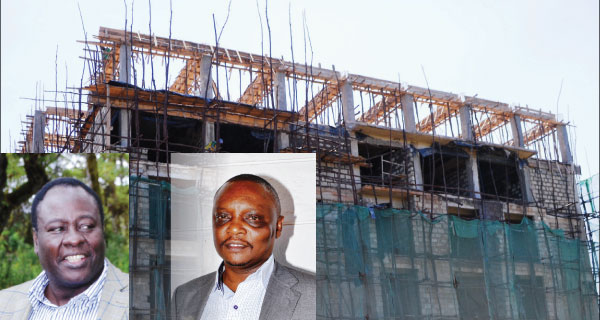×
The Standard e-Paper
Smart Minds Choose Us
 |
| Nyeri Governor Nderitu Gachagua and County Executive, Finance and Economic Planning, Martin Wamwea. [PHOTOS: SAMMY MOSE/STANDARD] |
By NDERITU GICHURE and MURIMI MWANGI
KENYA: When Mr Thomas Kikuvi obtained a bank loan to start a business, he thought Nyeri town was the ideal place.